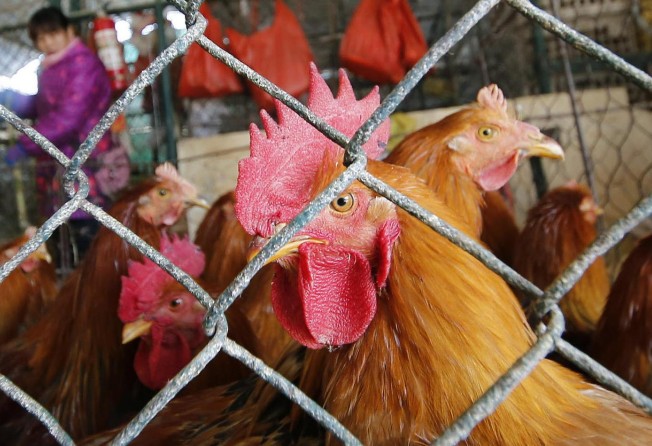Expect more human H7N9 bird flu cases if live poultry sales continue, Chinese officials warn
Cases still sporadic, but common infection factor remains human exposure to birds at markets

The number of human infections of the deadly H7N9 strain of bird flu should be expected to rise if the live poultry trade continues, mainland officials have warned.
Mainland health authorities yesterday reported five new human H7N9 cases, including a 56-year-old man who died in Lin county, Anhui, on Friday.
Three more new infections in Zhejiang are being treated in Haining , Lishui and Hangzhou .
A five-year-old girl in Guangzhou was confirmed on Saturday to have been infected with the disease, but she has already recovered and left hospital.
The number H7N9 human infection has risen steadily in the new year, with more than 180 cases reported, surpassing the number reported in all of last year.
Yao Hongwen , a spokesman for the National Health and Family Planning Commission, said experts had estimated mainland China would continue to show cases of human infection of H7N9 bird flu, but surveillance had found that transmission was still from poultry to humans and that the outbreaks were sporadic.
Shu Yuelong , director of the Chinese National Influenza Centre, blamed the recent rise in infections on more exposure to live poultry during the holidays.
"There are new reports of human infections of H7N9 bird flu every day, [but] one characteristic remains unchanged - human exposure to live poultry at markets," Shu said. "Our lifestyle has not changed, which is the fundamental reason such cases will continue to occur."
Only a change in how poultry was sold and consumed - a switch to fresh, frozen chicken - could reduce the risk of human infection, he said.
Such moves are being resisted by the mainland poultry industry. In an open letter issued at the Lunar New Year, the national association of poultry farmers appealed to health authorities not to report individual cases of H7N9 infections, claiming the practice had a disastrous effect on the industry, leading to losses of more than 100 billion yuan (HK$127 billion) last year.
However, Shu said public health should be the priority and there were other ways to protect the national economy and cut losses to farmers. "The most important change to minimise the financial losses are to change small-scale poultry farms and live poultry sales," Shu said.